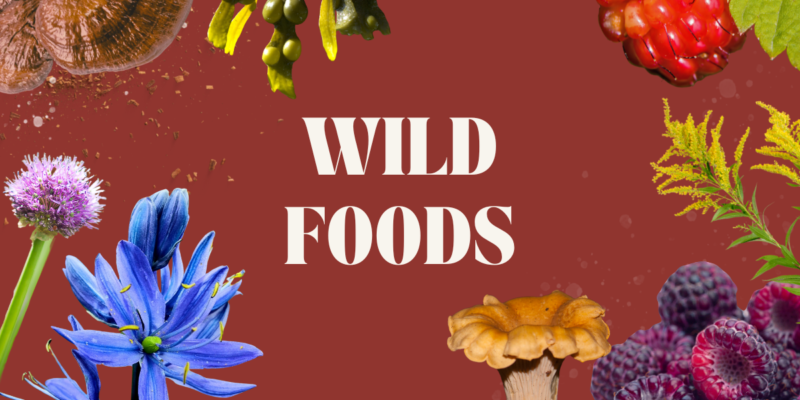
For outdoor enthusiasts, wild food foraging is not just a hobby; it’s a vital skill that can enhance survival in the wilderness. Whether you’re a seasoned adventurer or a novice camper, understanding how to forage wild foods can provide you with essential nutrients and a deeper connection to nature. This guide will explore the skills and knowledge necessary for successful foraging and how to integrate these practices into your outdoor activities.
Understanding Wild Foods
Wild foods encompass a variety of edible plants, fruits, nuts, and mushrooms that grow naturally in the environment. Foraging allows you to source fresh ingredients while connecting with the land around you. However, it’s crucial to have a solid understanding of which plants are safe to consume and which to avoid.
Benefits of Foraging for Survival
- Nutritional Value: Wild foods are often more nutrient-dense than cultivated counterparts. They provide vitamins, minerals, and antioxidants that can support your health in the wilderness.
- Cost-Effective: Foraging can significantly reduce the cost of food during outdoor expeditions. Instead of relying solely on store-bought supplies, you can supplement your meals with what nature provides.
- Self-Sufficiency: Knowing how to find food in the wild enhances your self-reliance. This skill can be especially beneficial in survival situations where traditional food sources are unavailable.
- Sustainability: Foraging promotes sustainable practices by encouraging respect for nature and an understanding of local ecosystems.
Essential Foraging Skills
1. Plant Identification
Accurate plant identification is the cornerstone of foraging. Familiarize yourself with local flora by using field guides or mobile apps. Key skills include:
- Recognizing Key Features: Learn to identify plants by their leaves, flowers, and stems. Focus on unique characteristics such as leaf shape, color, and growth patterns.
- Understanding Growth Seasons: Different plants are available at various times of the year. Knowing when certain foods are in season will improve your foraging success.
2. Harvesting Techniques
When foraging, it’s essential to harvest responsibly to ensure that plants can continue to thrive. Here are some best practices:
- Take Only What You Need: Harvest in moderation. Leave enough plants behind for regeneration and for other foragers.
- Use Proper Tools: A foraging knife or scissors can help you collect wild foods without damaging the surrounding ecosystem. Make sure to bring a sturdy basket to keep your finds fresh.
3. Understanding Edibility
Not all wild plants are safe to eat. It’s crucial to:
- Know the Poisonous Species: Familiarize yourself with common poisonous plants in your area. Understanding the risks will help you avoid dangerous situations.
- Conduct the “Test”: When trying a new wild food, start with a small amount to ensure you don’t have an allergic reaction. Wait 24 hours before consuming more.
4. Navigating and Mapping
Being able to navigate in the wild is essential for successful foraging:
- Use a Compass or GPS: Familiarize yourself with basic navigation skills to find and return to foraging locations. A compass or GPS device can help you stay oriented in unfamiliar terrain.
- Mark Your Routes: Keep track of areas where you’ve found good food sources for future foraging trips.
Practical Applications of Foraging in Survival Situations
In survival situations, foraging can provide essential sustenance. Here are some practical applications:
- Emergency Food Supply: In case of food shortages or unexpected delays during outdoor excursions, foraging can supply vital nutrients to maintain energy levels.
- Supplementing Rations: Foraging can enhance your regular meals by adding fresh, nutritious components, ensuring a varied diet even in remote locations.
- Building Community Skills: Foraging can be a group activity, fostering teamwork and shared knowledge among outdoor enthusiasts. Engaging with others can improve your skills and safety in the wild.
Benefits of Food Foraging
Foraging for food, the practice of gathering wild plants, mushrooms, and other edible items from nature, offers numerous benefits that extend beyond simply finding food. Here are some of the key advantages of engaging in this rewarding activity:
1. Nutritional Value
- Fresh and Natural: Wild foods are often richer in nutrients compared to commercially grown produce, as they grow in their natural environments without the use of pesticides or artificial fertilizers.
- Variety of Nutrients: Foraging can introduce you to a diverse range of foods, including vitamins, minerals, and antioxidants that may not be present in your regular diet.
2. Cost-Effective
- Free Food Source: Foraging can significantly reduce your grocery bills, as many edible plants and mushrooms are abundant and free for the taking in the wild.
- Minimized Waste: By foraging and utilizing wild edibles, you can help minimize food waste, as you are using local resources instead of relying on imported or processed foods.
3. Physical Activity
- Exercise: The act of foraging often involves hiking, walking, and bending, providing a good source of physical exercise while enjoying the outdoors.
- Improved Health: Regular outdoor activity has been linked to numerous health benefits, including better cardiovascular health, improved mood, and reduced stress.
4. Connection with Nature
- Mindfulness and Awareness: Foraging encourages a deeper connection with nature and mindfulness, as you become more aware of your surroundings and the ecosystems that support wild foods.
- Sustainable Practices: Learning about and practicing sustainable foraging fosters a greater appreciation for biodiversity and the importance of protecting natural habitats.
5. Skill Development
- Survival Skills: Foraging teaches essential survival skills, including plant identification, resourcefulness, and the ability to find food in nature.
- Culinary Skills: Preparing foraged foods can enhance your cooking skills, encouraging you to experiment with new flavors and recipes.
Conclusion
Wild food foraging is an invaluable skill for outdoor enthusiasts, offering a sustainable and nutritious way to connect with nature. By mastering the essential skills of plant identification, harvesting techniques, and safe navigation, you can enhance your outdoor experiences and become more self-sufficient. As you embark on your foraging adventures, remember to respect nature and practice sustainable methods. For more tips on foraging wild foods, visit foraging wild foods. By integrating these skills into your outdoor activities, you’ll not only enrich your culinary experiences but also deepen your appreciation for the natural world.










